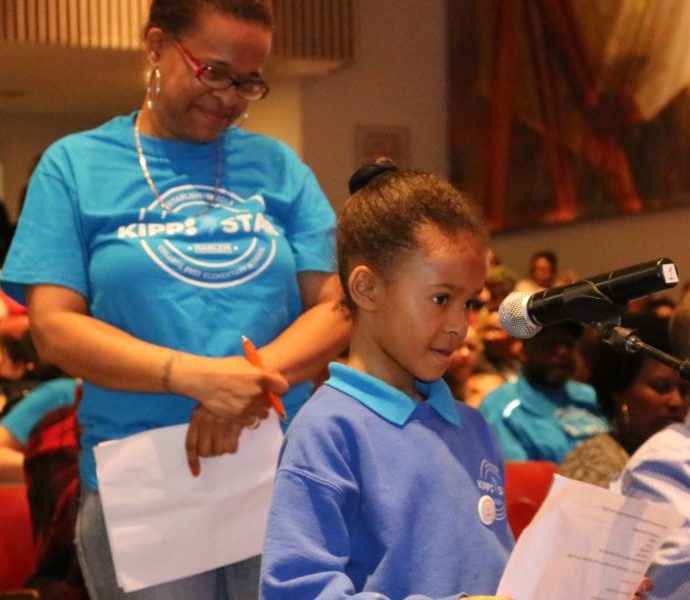At NAACP hearing on charter school moratorium, foes and fans find common ground
ByCassi Feldman
Read the full article at Chalkbeat.org >
When the NAACP called for a moratorium on charter schools last fall, the group’s president and CEO Cornell Brooks said the group wanted a “reasoned pause,” not a “doomsday destruction” of charters.
Still, it ignited a firestorm among charter school supporters and sparked a series of hearings nationwide, the last of which was held Thursday in New York City. But rather than a heated debate, the panelists and public speakers took pains to find common ground.
“We cannot have a situation where schools are pitted against each other,” Randi Weingarten, president of the American Federation of Teachers, told the packed auditorium at Harlem Hospital Center.
Many panelists said the problem wasn’t school choice, but the fact that too many parents felt compelled to seek alternatives to struggling district schools.
“If you go into communities where education is working, you don’t see people scrambling around, trying to figure out what school to put their child in,” said Lester Young, a member of the state Board of Regents. “We have communities in New York City right now where parents say there is not one middle school I can place my child in. Now, that’s the issue.”
Still, many of the speakers also acknowledged problems with charter schools, particularly in states where the laws governing them are more lax than they are in New York.
“We want to make sure that those schools are going to accept students that have special needs,” said Rebecca Pringle, vice president of the National Education Association. “We want to make sure that we do not create separate systems that are unequal.”
The charter school advocates on the panel seemed to agree that some charters weren’t working. They were quick to denounce for-profit charters, for instance. “For-profit operators have no business in education,” said Katie Duffy, CEO of Democracy Prep Charter School. Our children “are not assets and liabilities and they shouldn’t be treated as such.”
Rafiq Kalam id-Din II, who founded a charter school in Bedford-Stuyvesant, spoke about the need for more schools like his, founded and staffed by black and Hispanic community members. Without naming names, he called out charter schools that believe “if you don’t sit a certain way, you can’t learn” or are using suspension as a “first response” rather than a last resort.
“Criminalizing the behavior of our children — there should be a moratorium on that,” he said.
But it was Nyla Jenkins, 7, a first-grader at KIPP STAR Harlem College Prep Charter School, who drew the most applause of the night when she took the microphone and declared herself a junior lifetime member of the NAACP. “Let’s find a solution for all of us,” she said.
